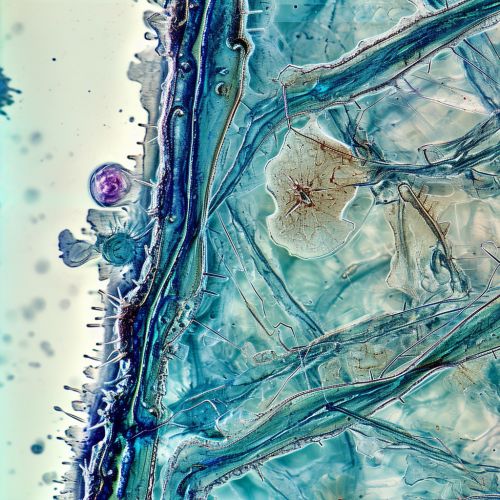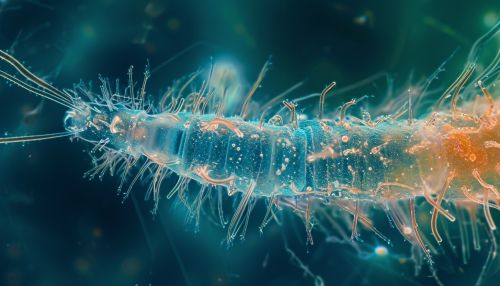Jakobida
Overview
Jakobida, also known as Jakobids, are a group of flagellated protists that belong to the kingdom Excavata. They are characterized by their distinctive mitochondrial genome, which is considered to be among the most primitive known, retaining many features lost in other eukaryotes. Jakobids are free-living, and can be found in a variety of aquatic environments, including both marine and freshwater habitats.


Classification
Jakobida are classified under the phylum Jakobea, within the kingdom Excavata. The phylum Jakobea is further divided into two families: Jakobidae and Histionidae. These families are distinguished by the number and arrangement of their flagella. Jakobidae species typically have four flagella, while Histionidae species have two.
Morphology
Jakobids are small, typically measuring between 10 and 20 micrometers in length. They possess between two and four flagella, which are used for locomotion. These flagella originate from a ventral groove, a characteristic feature of the Excavata kingdom. Jakobids also have a unique organelle called the kinetoplast, which is associated with the flagellar apparatus and contains extranuclear DNA.
Mitochondrial Genome
The mitochondrial genome of Jakobida is of particular interest to scientists due to its primitive characteristics. It is believed to be one of the most similar to the original mitochondrial genome of the first eukaryotes. The Jakobid mitochondrial genome is large and complex, containing many genes that have been lost in other eukaryotic lineages. This includes a complete set of tRNA genes, which is rare among eukaryotes.
Ecology
Jakobids are free-living organisms that can be found in a variety of aquatic environments. They are primarily found in oxygenated freshwater habitats, but can also be found in marine environments. Jakobids are heterotrophic, feeding on bacteria and other small particles in the water.
Significance in Evolutionary Biology
Due to their primitive mitochondrial genome, Jakobids are considered to be an important group for studying the evolution of eukaryotes. Their mitochondrial genome provides a window into the early evolution of eukaryotic cells, and can help scientists understand how complex cellular structures and processes evolved.
